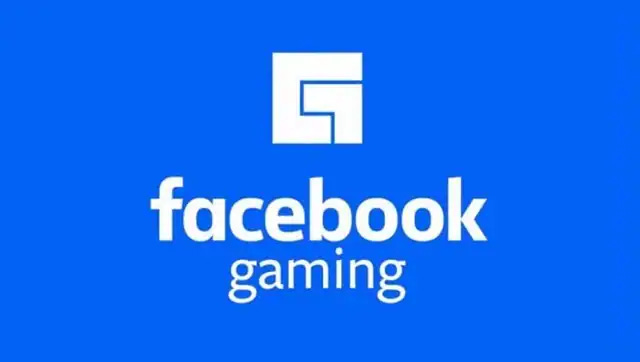Facebook Gaming Appears To Be Overrun By Spam And Pirated Content
Last fall, Streamlabs released a report stating that Facebook Gaming overtook YouTube Gaming to become the second most watched platform in terms of hours watched right behind Twitch. Not only are the streams above easy to find, but Facebook's most viewed content count suggests these videos are among the most viewed on the entire platform.
Of the ten movies we tested, the one that appeared to be from a reputable streamer had the second most video interactions from a webpage called Abo ATA Gaming. That seems to be the purpose of the 10-minute video from a webpage called Bomber Gaming, which ranked 10th for live video engagement.
In an attempt to rank the top streamers on Facebook Gaming, we used the Facebook CrowdTangle analytics tool to find the most engaged live videos on Facebook Gaming Creator Pages for the 30 days from January 16 to February 15. February 15 for 30 days. To rank the most important streamers on Fb Gaming, we used the CrowdTangle analytics tool to find the movies with the most engagement on the Fb Gaming creator page for the 30 days from January 16th to February 15th. From 30 days from January 16th to February 15th. While not all Facebook Gaming creator pages participate in Facebook's monetization program, many of them regularly post content that violates Facebook's monetization policies.
While not all of the pages were on Fb Gaming's monetization apps, some of them were periodically posted with content that gave the impression of violating the companies' monetization policies. Initially, Facebook posts led directly to sites from which malicious content could be downloaded, but more recently they have moved to Google Groups. Facebook Events is a favorite spamming tool, but Google Groups is also commonly used.
For several months, the scammers have been using Facebook events to promote their links to open-air malware or Trojans on numerous accounts. Spam groups are a global tactic on Facebook that often includes clickbait and misinformation. Facebook's intention to make group content even more visible in the news feed will make the tactic of spamming groups even more tempting.
Jennifer Dulsky said Facebook has invested in new tools to allow group members to report content that may violate the terms of service or certain group rules. Jennifer Dulsky said that in the case of hate speech or offensive content, Facebook uses machine learning to automatically flag posts that may violate its terms of service, whether people report it or not.
The issue affects many platforms, but seems to be fairly constant across Facebook and Google Groups. The biggest problem is that Facebook can't (or won't) do anything about movie piracy groups and forums.
The problem here is most likely the Digital Millennium Copyright Act, which basically gives Facebook a reason not to look for pirated content, since Facebook is only liable if it knows about it and ignores it. The company told Business Insider that Facebook is not responsible for removing content unless the content rights owner requests it. While it's not uncommon for streamers to use the "Hangout" hashtag (Twitch's equivalent of "Just Chatting") to stream non-gaming content, Facebook's monetization policy states that monetized content must be authentic and original.
Despite Facebook's clear spam and non-gaming content policies, some of these accounts still participate in the Facebook Level Up or Partner programs, which allows them to sell memberships to fans and gain access to other monetization features. Despite Fb Gaming's clear spam and non-gaming content insurance policies, some of these accounts are still on the Fbs Degree Up or Associate apps, allowing them to promote fan subscriptions and access various monetization options. Hackers coveted Facebook accounts for years, often selling them to online cybercriminals, Wilson said.
Facebook has taken several steps to protect people from ad fraud, such as implementing tools to flag such schemes in the UK. The over 2.45 billion people who log into Facebook each month are an attractive target for malicious link ads, and using someone's ad account is an increasingly popular way for online criminals to fund fraud for free. While this type of spamming is not new, Google, Facebook, and other companies may want to take a closer look at how to properly handle it.
Henry Lau said the ad saw 64,784 people before Facebook took it down. Facebook didn't stop the campaign because it was promoted by hackers, Henry Lau said. On October 15, while Henry Lau was sleeping, hackers quietly took control of his Facebook ad manager page.
Henry Lau was able to recover his account after these hacks, Annie Beth Donahue, a North Carolina writer, was less fortunate. Another blogger described how hackers took control of his Facebook account and started posting ads for 1200 PS (about $1550) a day, and how he didn't get a warning until PayPal notified him of the transaction.
As with all content on Facebook, be sure to follow the community guidelines and avoid bait. Mark Zuckerberg wants to put a billion people in "meaningful" Facebook groups. Facebook also uses group membership data to recommend new friends. Instead, Facebook Gaming is a hodgepodge of pages with generic names that claim to be game creators but behave more like spammers, often posting pirated footage or nonsensical videos masquerading as live game streams.




